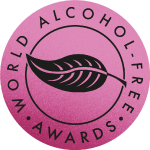Non-alc wine – big challenges… bigger opportunities
17 October 2022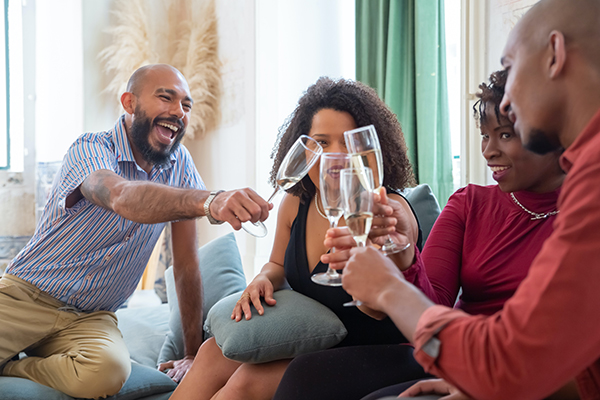
Alcohol-free wine has been around a long time. The first de-alcoholisation plant was built in Germany back in 1908, and two of the best-known zero-abv wine brands – Eisberg and Ariel – have been in existence since 1985.
More recently, well-established wine businesses have weighed in, too. Torres, McGuigan and Lindemans have all started to sell de-alcoholised wines.
But these wine world behemoths have been joined by new businesses specialising solely in alcohol free wines. The likes of Oddbird, Thomson & Scott and Wild Life Botanicals have been dedicated – and welcome – additions to the category.
From slim pickings, we are starting to see choice.
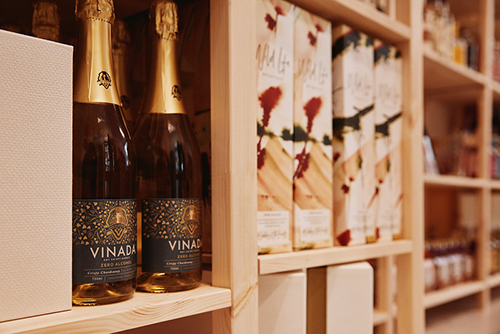
Alcohol-free wines on sale at Club Soda's London pop-up early in 2022
That’s the good news. The bad news is that there’s still a way to go to convince much of the public and the hospitality industry.
‘Guests have a perception that it’s just a sweet grape juice, with a lot of sugar,’ says Imma Cannavano, head sommelier at Oblix in London. ‘People don’t really know it and believe in it. So there is always a kind of doubt. It doesn’t really sell.’
This is in stark contrast to the attitude to alcohol-free beer, where there seems to be little resistance – and, in fact, a good deal of positivity - from both trade and consumers.
But Kayla Winter, winemaker at de-alcoholisation specialists, BevZero, thinks there’s a good reason for that: namely, that consumers still expect alcohol-free versions of drinks to taste – and feel – like their alcoholic counterparts.
‘The reality,’ she says, ‘is that beer fits that bill, but wine and spirits, just cannot provide the heat, mouthfeel, and sweetness profile that higher alcohol products provide.’
Beer over wine
Beer has a couple of natural advantages here, regarding the production process. Firstly, it’s possible to play with yeasts and the grain composition to create naturally very low-alcohol, non-sweet beer. The same is not true of wine.
Secondly, beer which is de-alcoholised (as opposed to made low) starts at a far lower ABV. To get a beer to the 0.5% ABV level that constitutes ‘alcohol-free’ often requires the removal of just 3-4% of alcohol. Wine, by contrast, frequently starts around 13%, and stripping out that much alcohol seems to have a far greater impact on the finished liquid.
In wine, the alcohol is removed either through vacuum distillation, spinning cone column distillation or reverse osmosis. They’re all different processes, but essentially involve splitting off the alcohol and the flavour molecules then blending the latter back into the de-alcoholised liquid.
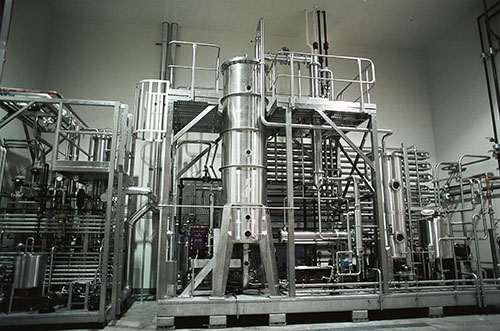
Spinning cone machinery at BevZero's plant. Not for the dilettante...
One seasoned wine observer has called it ‘open heart surgery’ and, like the latter, it is time-consuming, expensive and requires extraordinary levels of technical expertise.
What seems to be true is that sparkling wines, such as Thomson & Scott’s Noughty de-alcoholised Chardonnay or French Bloom, are finding greater acceptance than still wines. Perhaps because the bubbles can provide texture and any touch of sweetness is more easily assimilated.
Go go GoLo!
The original spinning cone technology was created initially to extract aromas for coffee. But BevZero say they have created a new GoLo technology, designed specifically for wine, which is both better and more efficient. They are currently converting their facilities to the process, and it will be interesting to see what impact this – and future technical advances – might have on the overall quality of de-alcoholised wine.
But there’s a second school of thought; one which is both more radical and also, from some perspectives, more logical. Namely, rather than starting with an alcoholic product and then removing a significant element of what defines it, why not build a booze-free flavour profile from the bottom up?
Lyre’s did this with their highly successful range of spirits, and also their Classico, which is based on the grapes and style of a prosecco. It’s something which MD Mark Livings describes as approaching the products like scientists rather than distillers or winemakers.
‘We looked at the molecules that were exciting the palate and tried to isolate them from natural sources and blend them into a water base,’ he says. ‘Given the scale of the opportunity [in the wine category] we'd be remiss not to try and innovate in that space as well.’
The team at BevZero regularly add other ingredients to their finished products, too, to help fill in gaps in the flavour profile.
.jpg) |
‘Since the product is now a food product and not alcohol, the options are much greater in terms of ingredients we can legally add,’ says Kayla Winter. |
It's ok to add
Wine traditionalists might throw their hands up in horror at the idea of actively building a flavour profile. But in fact there is a long history of adding flavours to wine. Most obviously, perhaps, in vermouth, but also via oak, resin, even choices of yeast.
And there are many examples of a region’s vegetation influencing the end-products flavour, too, from eucalyptus bushes in Australia or gum cistus in the Douro to the wild scrub notes of the French garrigue.
‘Wines often carry these flavours quite naturally,’ points out the World Alcohol-Free Awards’ head of judging, Christine Parkinson. ‘So why not use botanicals gathered from around the vineyards to supplement the structure and flavour of de-alcoholised wines?’
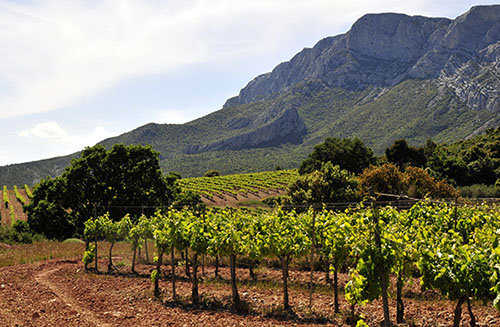
The 'garrigue' vegetation in southern France adds distinctive flavours to the region's wines
What seems clear is that, while there is no shortage of experimentation, and things are definitely better than they were ten years ago, both a definitive solution and a break-out product remain elusive.
Of all the alc-free categories, wine might – by common consent – be the biggest challenge. But that also, perhaps, makes it the one with the biggest potential…
 |
And Chris Becker (left), from north American importer Better Rhodes thinks it’s just a matter of time. ‘If we can put a man on the moon,’ he says, ‘I think we can come up with a good-tasting alcohol-free wine.’ |
If you've got a great alcohol-free wine - or wine-alternative that you'd like to enter for the competition, register via the button top-right, and follow the entry process. It'll take less than five minutes!
